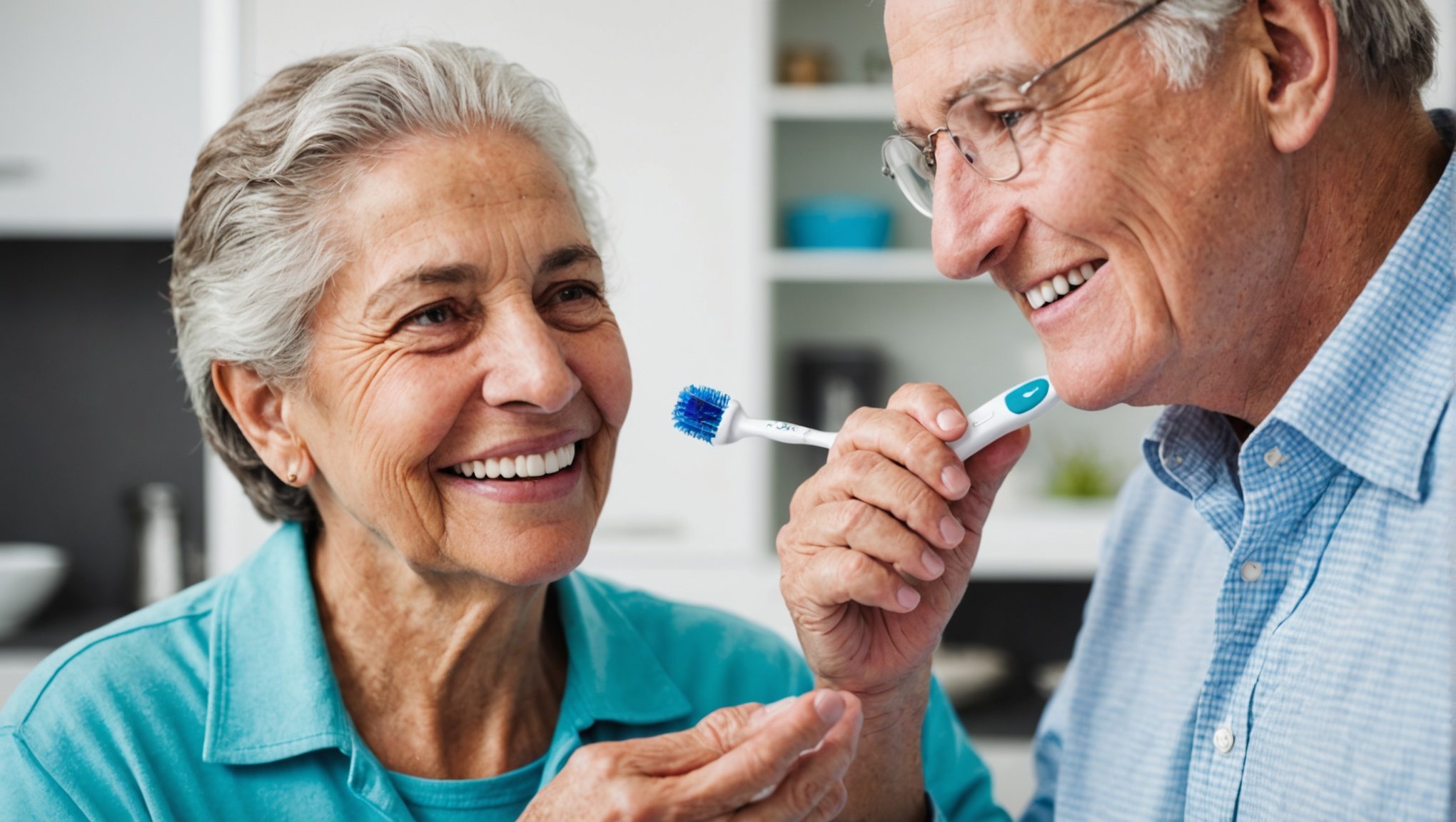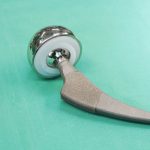Maintaining oral health becomes increasingly challenging for seniors with limited dexterity. Traditional toothbrushes can be cumbersome, leading to inconsistent cleaning and potential dental issues. Electric toothbrushes, with their advanced technology and ease of use, offer a promising solution. They can enhance brushing effectiveness, making daily routines more manageable. This exploration investigates how electric toothbrushes cater specifically to the needs of seniors, offering practical benefits that promote better oral hygiene and overall well-being.
Benefits of Electric Toothbrushes for Seniors
Electric toothbrushes offer significant benefits for senior oral care, particularly for those with limited dexterity. These devices are designed to enhance the brushing experience by reducing the physical effort required, making them an excellent choice for seniors who may struggle with manual toothbrushes.
Also read : Unlocking Restful Nights: The Role of Cognitive Behavioral Therapy in Alleviating Insomnia for Seniors
One of the primary advantages of electric toothbrushes is their ability to provide a more thorough cleaning. The oscillating or vibrating bristles can reach areas that are often missed with manual brushing, ensuring a comprehensive clean. This is crucial for seniors, as maintaining good oral hygiene can prevent common issues such as gum disease and tooth decay.
In comparison to manual toothbrushes, electric toothbrushes are more effective in removing plaque and reducing gingivitis. Studies have shown that electric toothbrushes can remove up to 21% more plaque than their manual counterparts. This effectiveness is particularly beneficial for seniors, who may have difficulty maintaining consistent brushing techniques due to arthritis or other mobility issues.
Topic to read : Boosting Senior Fitness: The Role of Interactive Video Games in Encouraging Physical Activity
For seniors with limited dexterity, electric toothbrushes are not just a convenience but a necessity. The automated motion reduces the need for precise hand movements, allowing seniors to maintain their oral health with ease. This ensures that they can enjoy the benefits of a healthy smile without the strain of manual brushing.
Key Features of Electric Toothbrushes for Seniors
Electric toothbrushes designed for seniors incorporate several key features that cater to their unique needs. Understanding these features can help seniors make informed choices for maintaining optimal oral health.
Ease of Grip
A senior-friendly design often includes an ergonomic handle, which is crucial for those with limited dexterity or arthritis. These handles are typically larger and feature a non-slip grip, making it easier for seniors to hold and maneuver the toothbrush without discomfort or strain. This design not only enhances comfort but also ensures that seniors can maintain a steady grip while brushing.
Automatic Timers
Automatic timers are an essential feature in electric toothbrushes for seniors. These timers encourage effective brushing by signalling when the recommended two-minute brushing duration is complete. This helps ensure that seniors brush for the appropriate amount of time, reducing the risk of plaque build-up and promoting better oral hygiene.
Gentle Cleaning Modes
For seniors with sensitive gums, gentle cleaning modes provide a softer brushing experience. These modes use reduced speed and pressure, preventing irritation and discomfort while still ensuring a thorough clean. This is particularly beneficial for seniors who may experience gum sensitivity due to medication or age-related changes in oral health.
Oral Health Implications
Understanding the connection between oral health and overall health is crucial, especially for seniors. Poor oral health can exacerbate chronic conditions such as diabetes and heart disease. For seniors, maintaining good oral hygiene is not just about preserving teeth but also about enhancing overall well-being.
Improved oral hygiene significantly impacts chronic conditions. For instance, controlling gum disease can help manage blood sugar levels in diabetics. Similarly, reducing oral bacteria can lower the risk of heart infections. These benefits highlight the importance of consistent dental care for seniors.
Statistics reveal that dental issues are prevalent among the senior population. About 68% of seniors suffer from gum disease, and nearly 20% have untreated tooth decay. These conditions can lead to more serious health problems if not addressed. Therefore, prioritizing oral health is essential in preventing further complications.
Electric toothbrushes can play a pivotal role in improving oral health for seniors. By ensuring a thorough clean, they help reduce plaque build-up and prevent gum disease. These devices, with their advanced features, offer tangible benefits for seniors striving to maintain their oral health and, consequently, their overall health.
Expert Opinions on Electric Toothbrushes
Understanding the effectiveness of electric toothbrushes through the lens of dental expert opinions is invaluable for seniors seeking optimal oral care. Dental professionals consistently highlight the superior plaque removal capabilities of electric toothbrushes, emphasizing their role in preventing gum disease and tooth decay. According to these experts, the oscillating and rotating movements are particularly effective in reaching areas that manual brushing might miss.
Recommendations for Seniors
Geriatric care specialists recommend electric toothbrushes specifically designed for seniors, advising that these devices can significantly improve oral health outcomes. These specialists often stress the importance of selecting toothbrushes with features like ergonomic handles and gentle cleaning modes, which cater to the unique needs of the elderly. Such features not only enhance ease of use but also ensure that seniors can maintain effective brushing habits despite physical limitations.
Importance of Professional Guidance
Professional guidance is crucial when selecting oral care products. Dental experts suggest that seniors consult with their dentists to choose the most suitable electric toothbrush. This personalized advice ensures that seniors select a device that aligns with their specific oral health needs, promoting better hygiene and overall health. Regular dental check-ups further complement these recommendations, allowing for adjustments in care as needed.
User Testimonials and Experiences
Hearing directly from seniors about their experiences with electric toothbrushes offers valuable insights into their effectiveness and usability. These electric toothbrush reviews often highlight significant improvements in oral care routines, showcasing how these devices cater to the unique needs of older adults.
Many seniors report that electric toothbrushes have transformed their daily oral hygiene. They express satisfaction with the ease of use, particularly appreciating features like ergonomic handles and automatic timers. Such features help maintain consistent brushing habits, which is crucial for effective oral care. Seniors often note that electric toothbrushes have reduced the physical strain associated with manual brushing, making it easier to achieve a thorough clean.
Senior testimonials frequently mention the reduction in dental issues since switching to electric toothbrushes. Users have observed less plaque build-up and healthier gums, attributing these improvements to the advanced cleaning technology of electric toothbrushes.
While some seniors initially faced challenges, such as adjusting to the vibration or selecting the right brush head, most found these issues manageable with time. The overall consensus is that electric toothbrushes not only simplify oral care routines but also enhance oral health, making them a valuable tool for seniors seeking to maintain their dental well-being.
Comparing Electric Toothbrushes and Manual Options
When evaluating electric vs manual toothbrushes, the differences in brushing effectiveness are significant. Electric toothbrushes often outperform manual ones in removing plaque and reducing gingivitis due to their oscillating and rotating bristles. This advanced technology allows for a more thorough clean, reaching areas that manual brushing might miss.
Brushing techniques also vary between the two. Electric toothbrushes require minimal effort, as the automated motion handles most of the work. In contrast, manual toothbrushes depend heavily on the user's technique, which can be challenging for those with limited dexterity.
Cost considerations are another factor. While electric toothbrushes may have a higher initial cost, they can be a wise long-term investment. Their effectiveness in maintaining oral health can potentially reduce dental costs over time. Manual toothbrushes, however, are more affordable upfront but may not offer the same level of cleaning efficiency.
User preferences often hinge on comfort levels. Some individuals appreciate the ease and effectiveness of electric toothbrushes, while others prefer the simplicity and control of manual options. Ultimately, the choice between electric and manual toothbrushes depends on personal needs, budget, and comfort with brushing techniques.
Practical Tips for Choosing an Electric Toothbrush
When selecting an electric toothbrush for seniors, it's crucial to focus on features that enhance usability and effectiveness. Look for models with ergonomic handles and non-slip grips, ensuring ease of use for those with reduced dexterity. Automatic timers and gentle cleaning modes are also essential, promoting thorough brushing without discomfort.
Key Features
Consider toothbrushes with pressure sensors that alert users to brush gently, preventing gum damage. Long battery life and easy-to-replace brush heads add convenience.
Brand Recommendations
Some reputable brands include Oral-B and Philips Sonicare, known for their senior-friendly designs. These brands offer models with varying features, allowing seniors to choose based on specific needs and preferences.
Budget Considerations
While electric toothbrushes can be pricier than manual ones, they often offer better long-term value by improving oral health and potentially reducing dental visits. Compare features across models to find a balance between cost and functionality. Look for discounts or bundle deals that include extra brush heads or travel cases, maximizing value without compromising on essential features.
Maintenance and Care for Electric Toothbrushes
Regular electric toothbrush maintenance is essential for ensuring longevity and optimal performance. Proper care not only extends the life of the toothbrush but also maintains its effectiveness in promoting oral health.
Cleaning and Replacement Guidelines
To keep your electric toothbrush in top condition, it's important to clean the brush head thoroughly after each use. Rinse the bristles under running water to remove toothpaste and debris. Once a week, detach the brush head and clean the area where the head connects to the handle to prevent build-up. Replace brush heads every three months, or sooner if the bristles become frayed.
Tips for Seniors
Seniors can benefit from specific care tips to ensure effective use and upkeep of their electric toothbrushes.
- Keep the handle dry: After brushing, wipe the handle with a clean cloth to prevent moisture from damaging the internal components.
- Store properly: Stand the toothbrush upright to air dry, reducing the risk of bacterial growth.
- Check battery life: Regularly charge the toothbrush to avoid interruptions in usage. Some models have indicators to alert when charging is needed, aiding in consistent maintenance.
















